In Praise of Building Stuff for Fun
I built a tiny app with AI to shorten the distance between having an idea and doing a thing. Again.
This November, I opened Goodreads and felt a small panic rise in my chest. There are only two months left in the year, and I am, once again, behind on my reading goal.
Usually I’m right on track, give or take a book, but this year I planned a wedding, which is basically a second job, and spent the rest of my free time wrestling with French bureaucracy: getting a new visa, a new passport, and marriage and tax documents—essentially an entire novel’s worth of paperwork on their own.
Right now, I’m at 27 books. My goal is 40. (Last year I set it at 32 and ended at 38, so I thought I was being reasonable.) I refuse to set goals that are too far from my actual rhythm, because I know myself. I’d turn it into a reading spreadsheet game instead of embracing what reading is for me: essential to my joy, sanity, and curiosity.
But also…I want to reach somewhere around 40.
So last week, instead of listening to an audiobook at 3x speed or Googling short books that don’t suck, I decided to build myself a little website on Lovable.
At work, we talk about AI all the time. I spend my days with founders, long-time business owners, and operators—from roofing specialists to restaurant owners, software engineers to cosmetic surgeons—who all ask the same thing: Am I already behind? AI tools are getting powerful quickly, and for those not experimenting at all, the gap gets wider.
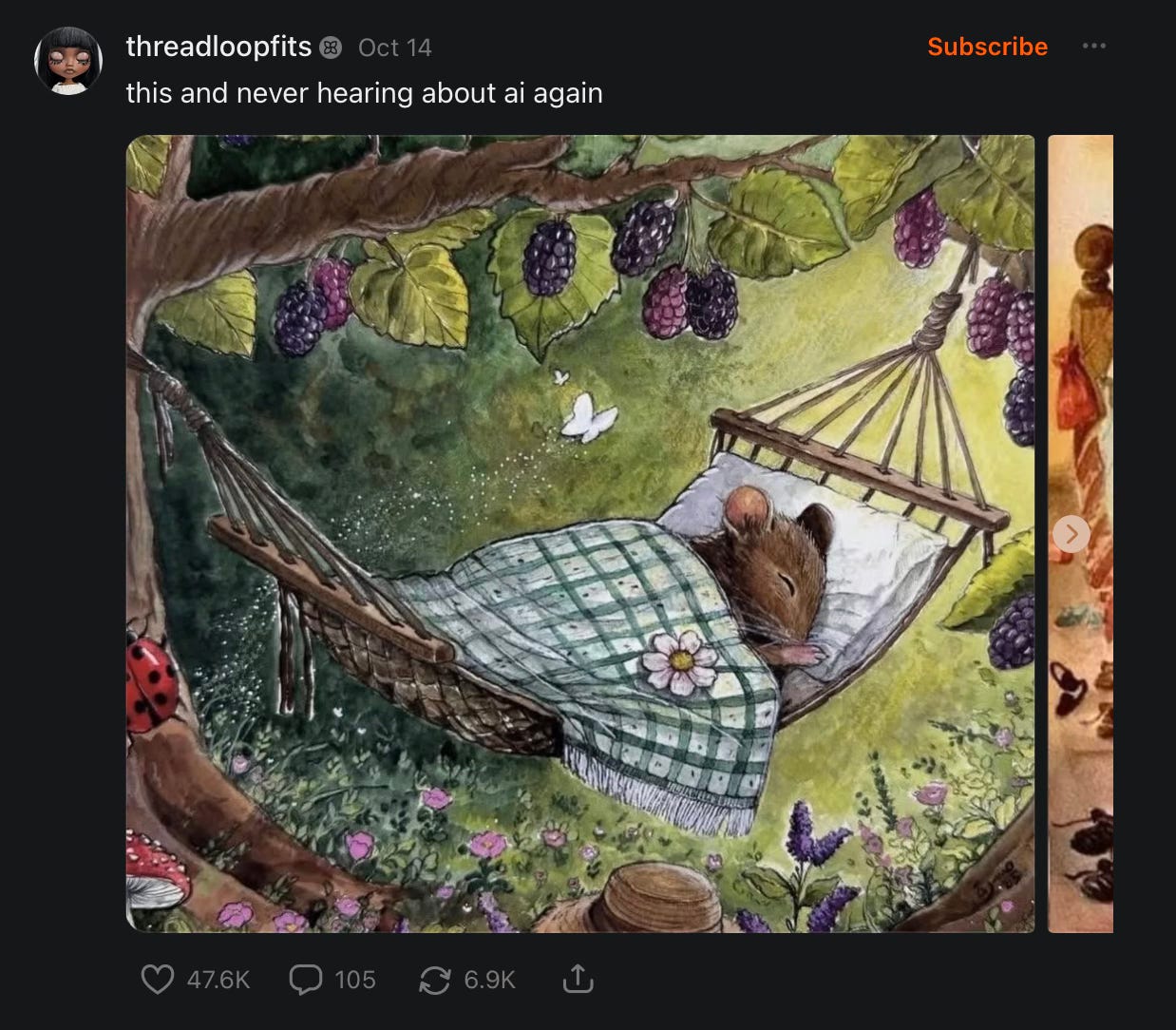
Then I read
’s “I’m worried about women in tech.” Elena runs growth at Lovable and wrote that only about 20% of their users are women. She kept asking herself why, since there’s no barrier to entry. You can just show up and start building for free, even if you don’t understand coding at all. But still, women aren’t building with AI.Her point was that we often wait until we feel confident or “ready,” and this time, waiting might have a cost. The early adopters and the people tinkering now (I have a few guy friends who get together on Saturdays just to build sites for fun) will be seen as the “AI experts” later. That compounds into promotions, equity, and opportunity. Those who don’t try at all could end up a few steps behind.
I read that and thought: she’s not wrong. So instead of filing it away as another good point, I opened a window and started building something.
I use AI every day. I help teach people about AI. I even worked on deep-tech AI software in my last job. But I’m not someone who believes every spreadsheet needs a chatbot or that tech will save us all. And I also think it’s a real choice to put your head in the sand and not experiment at all. Those truths coexist for me at once.
I’m not hardcore technical, which is why this feels freeing. I can poke around a little code if I have to, but what I like about these new tools is that you don’t need to be an elite coder to make something. It reminds me that creative work doesn’t always mean painting or writing; it can also mean building something digital just because I can.
Curiosity is a muscle, and letting it atrophy when it comes to technology doesn’t make the world slow down for you. It just means you start watching the world turn from further away.
So I spent an afternoon in Lovable building a small, easily navigable directory of 1,500+ short, actually great books (pulling data from Goodreads; the threshold was 3.8 stars or higher) to help me inch toward the finish line of that reading goal without compromising my standards. It includes short but impactful books I’ve loved like Persepolis and Between the World and Me and reminded me that I should probably read In Praise of Shadows and A Short History of Financial Euphoria, which have been collecting dust on my shelf for far too long. I can filter by Fiction, Graphic Novels, and Memoirs, among nearly twenty other categories, and there’s no book in there over 180 pages.
If I’m honest, this tiny build made my whole week.
Doing something hands-on—whether it’s learning to watercolor paint or cooking a new recipe (see: my tomato tarte tatin from a few weeks ago)—is like turning on a faucet after a long winter. At first it’s a belabored drip-drip-drip. Then the system comes online, and the water starts to rush out. It’s not that inspiration comes first, then we act. It’s that we act first, and somewhere along the way the ideas get better, more abundant, and easier to execute.
I’m obviously not pivoting to become a CTO. This isn’t my zone of genius or whatever. But this few-hour project has me generating new ideas: What else could be easier? What else could I build? What new tools can actually knock tedious work off my plate?
Take this for instance: last week my husband built a small Airtable database to manage our apartment hunt in Paris. It has an embedded AI agent that automatically populates all the key info when you paste a link, including price, square meters, DPE (energy rating), floor, bedrooms, agent, phone number, and photos. Then we can quickly sort the ones that are maybe it has good bones?? apartments with grandma wallpaper and skip the ones where you have to walk through a bedroom to get to the kitchen.
It’s so useful. And we don’t have to copy and paste every single detail into a spreadsheet, which is, objectively, a mind-numbing and thankless task that neither one of us wants to do. So now we can just live our lives, adding our opinions and phone photos on the go when we’re at viewings, while AI handles the parts we hate.
And I will, of course, build many more dumb ideas—like the Soup Finder I’m about to make for fun to take three fridge ingredients and surface an easy winter recipe. Ninety-five percent of them will be useless. And right now my brain is limited to ChatGPT wrappers with pretty front ends. But if even 5% of what I make is delightful or helpful or inspires something new for me, that’s already worth it.
I don’t need my digital or analog experiments to make money. That’s not the point. It’s another form of play. I just don’t want to be the person who only uses technology once someone else has already decided what it’s for.
Working in startups now, and coming from journalism—where we know our first draft won’t be the one that gets published—I’ve learned that progress happens version by version.
And the only way to get to version two is to ship version one.
—
Two quick questions I’d love to hear your answers to:
1. What’s a short book I should read before the year ends?
2. What’s one way you’ve used AI (beyond chatting with a bot) that’s actually made your life or work better?
I’d love to try what you recommend.
—
(Also, this one’s shorter than usual. Maybe I’ve been taking notes from my friend
, who’s so good at writing through one idea really well in her newsletter and leaving you wanting more.)

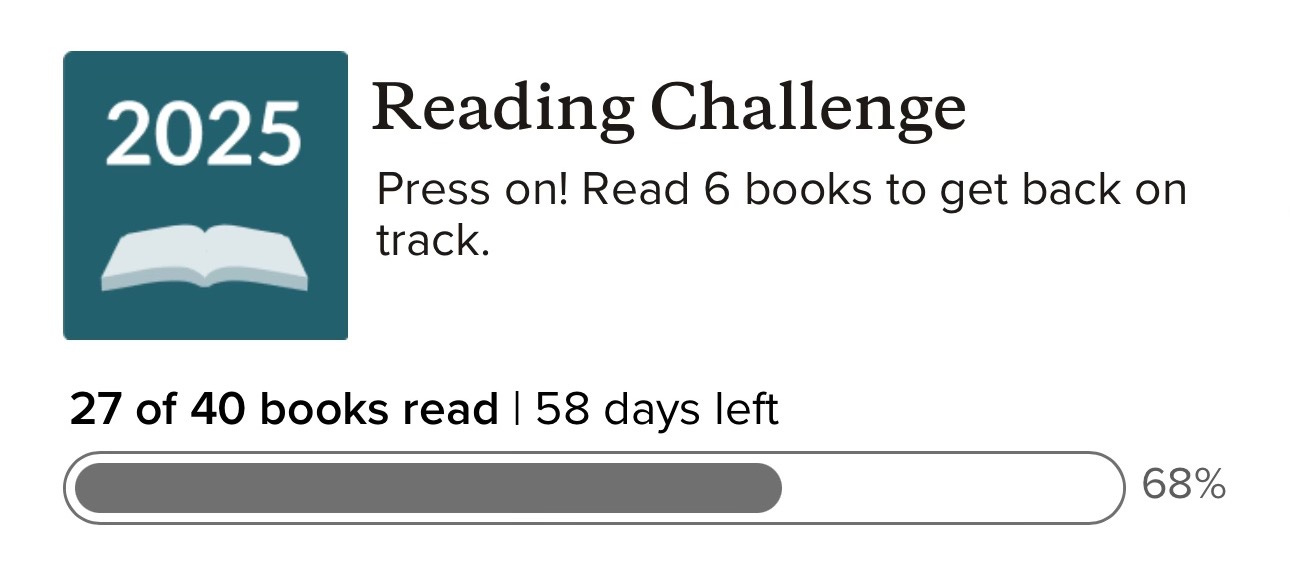
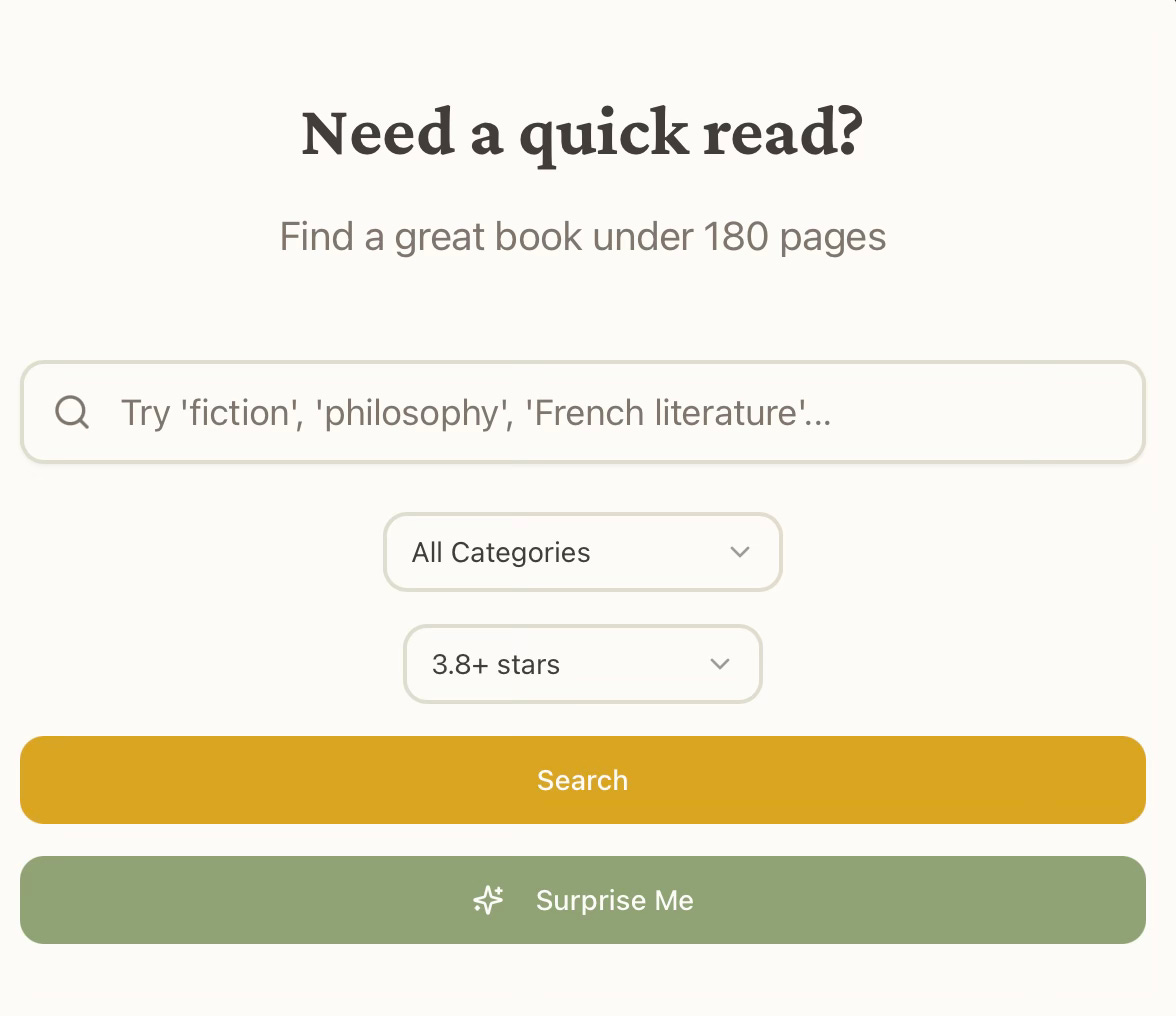
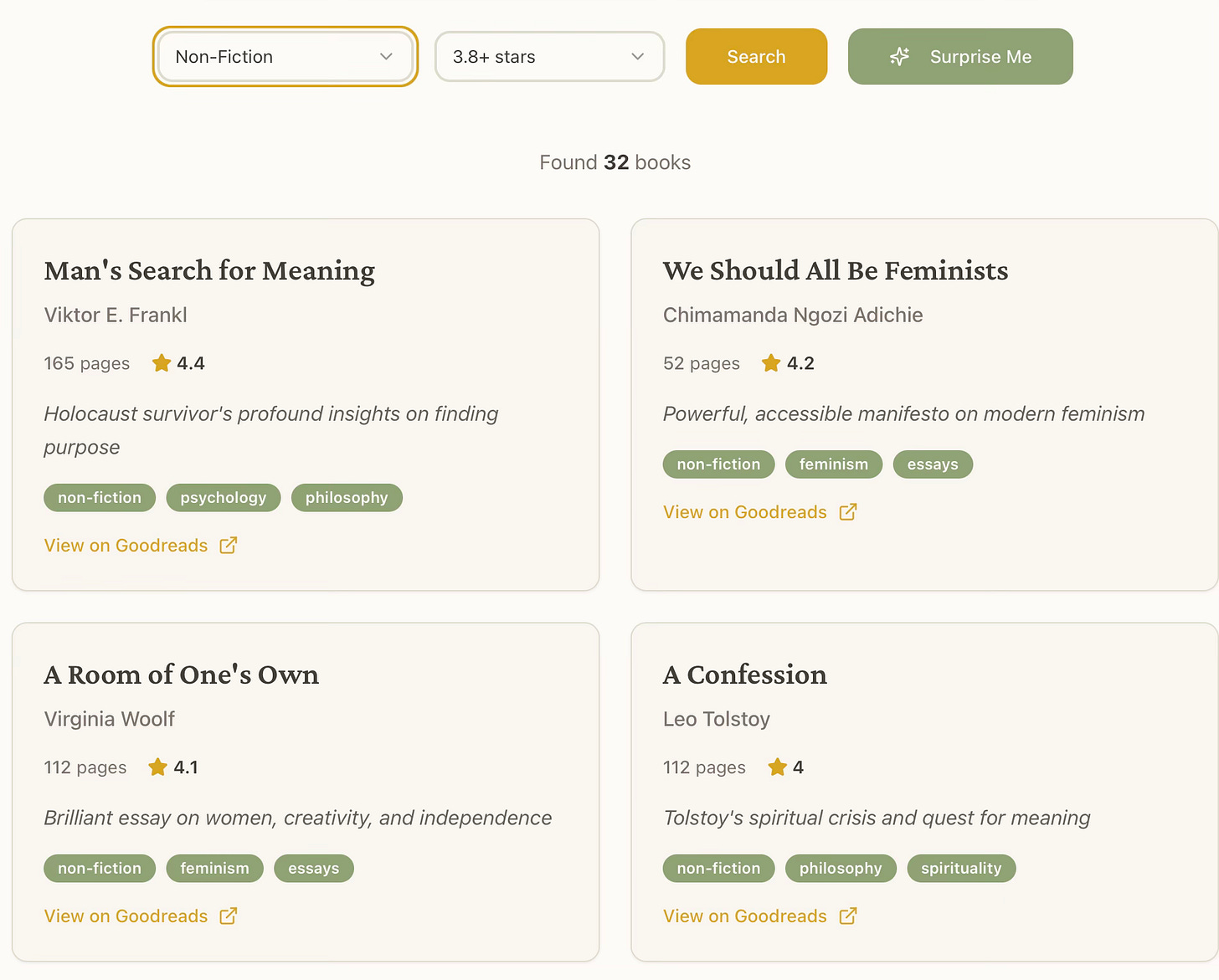
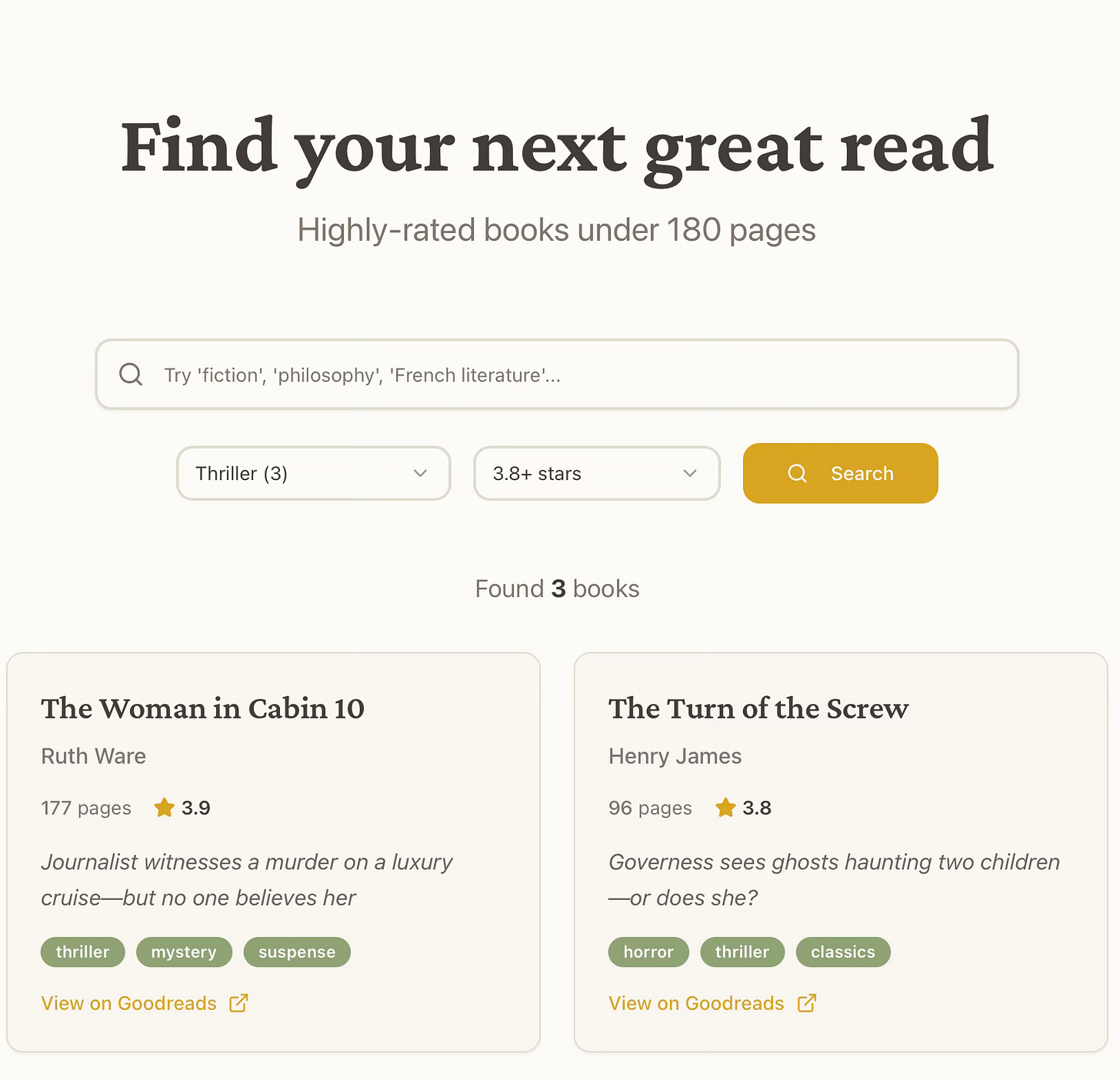


What high praise!!!! xx
A Guardian and a Thief by Megha Majumdar (shortish: 224 pgs)